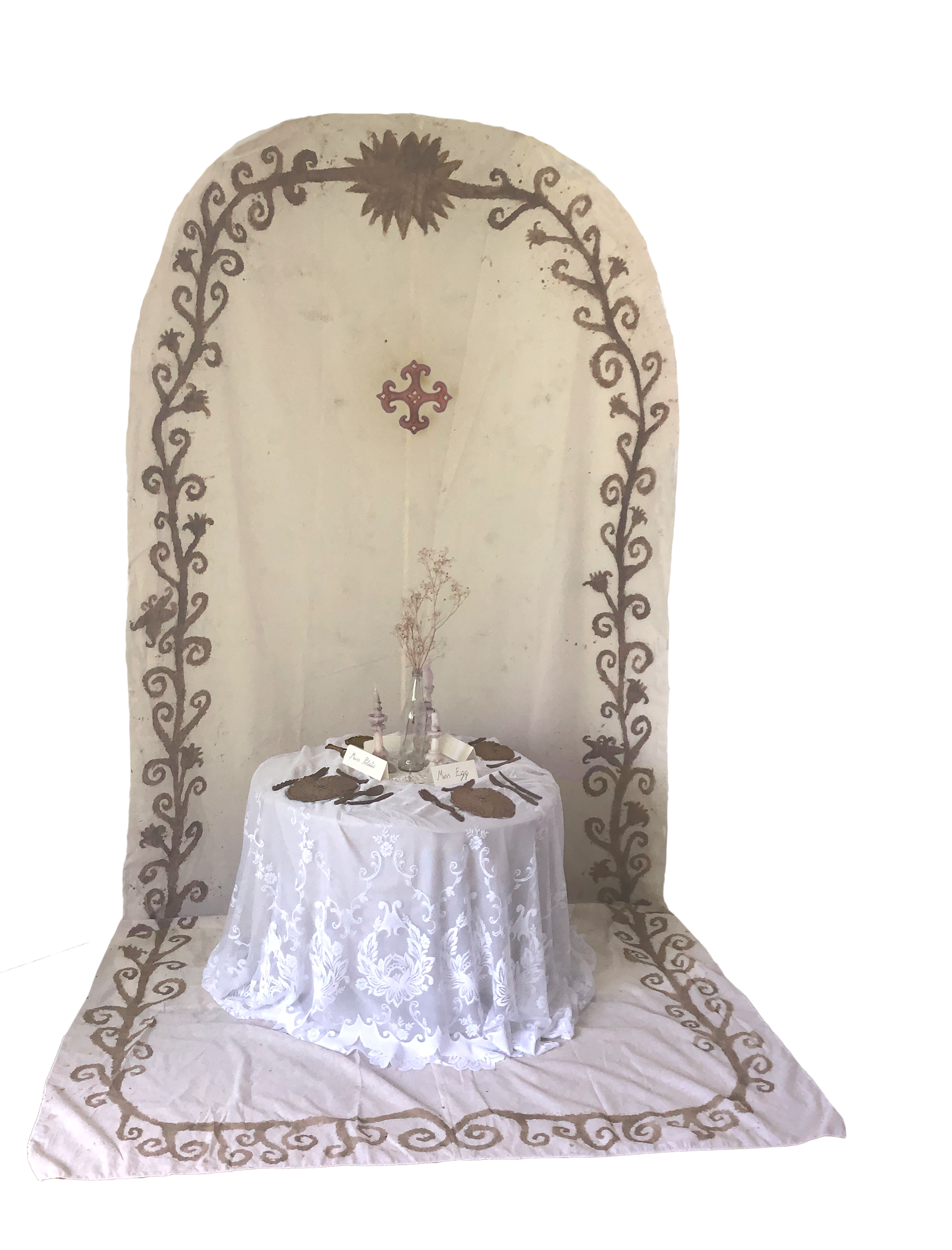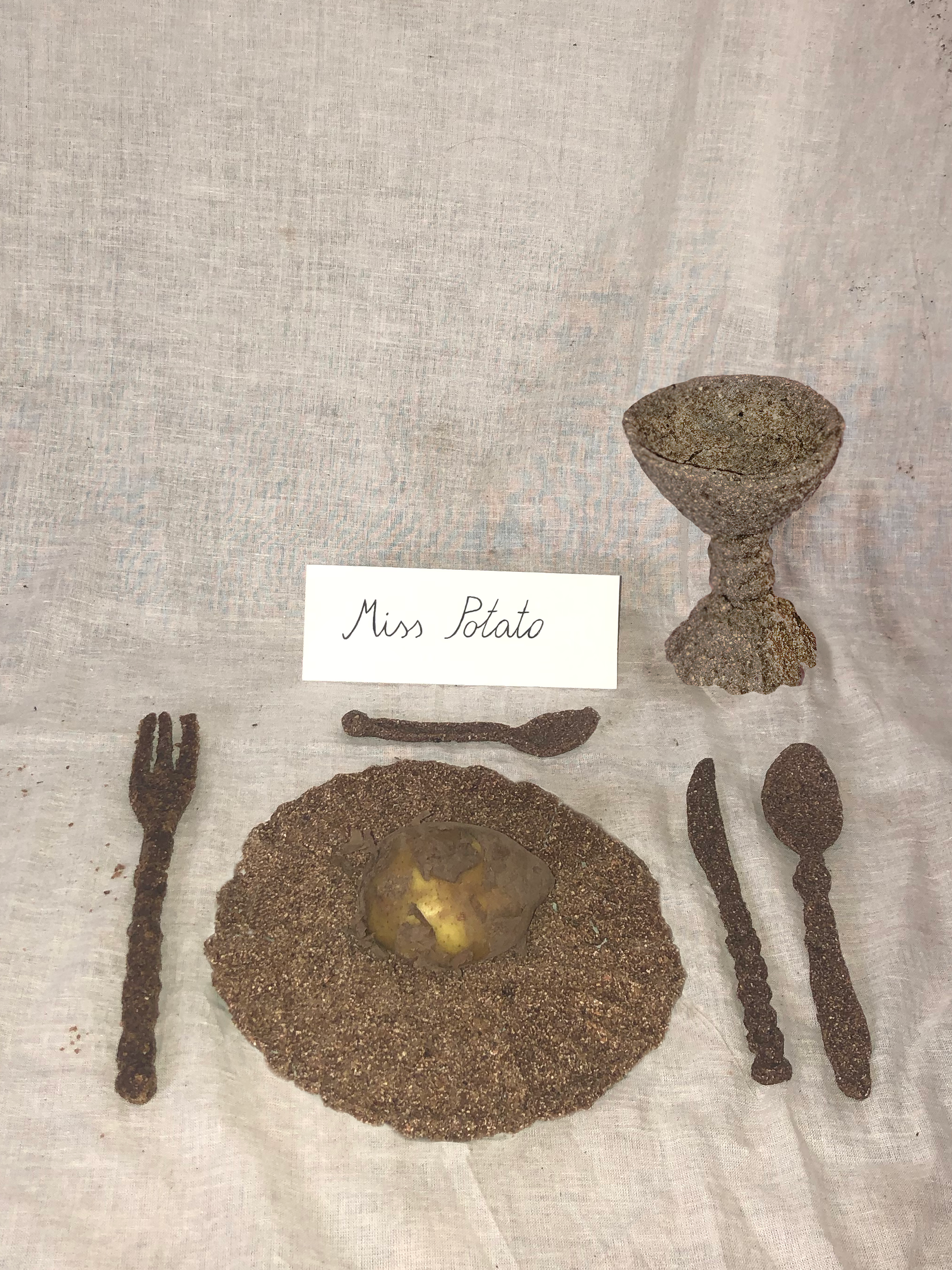How do the degrees of abstraction and distance from our resources play a role in the way we consume and understand the world? How can the relationship between humans and non-humans be restored? How can we revise our perception of progress and interrupt linear routes to waste?
Clay is a renewable resource in a sense that it is constantly forming, but not on a human timescale.
Limestone is weathered at an average of 1/20 centimetre every 100 years.
Meanwhile each day, globally 3.5 thousand tonnes of food gets thrown away. Peels, skins, tops, leaves, shells, roots, stems.
Boiled, mashed, whipped, blended, grated, and crushed into a powder form - a material from food waste resembling the properties of clay.
Elysium Feast is a food waste dinner on food waste tableware for food waste guests where both human and non-human substances are invited to a dinner table to get reacquainted and indulge in each other's offerings.
Facing environmental problems demands the return of a deep consciousness of the material world around us and the profound integration we have with our surroundings.
The output installation attempts to encapsulate the many faces of the earth matter, taking into account its long past, fleeting present and uncertain future. Combining a sense of both otherness and unity, it's a prompt to reassess the current relationship between the human and non-humans on a personal level. We are a part of nature and nature doesn't progress in a linear sense, it moves through time experiencing cycles, inevitably acquiring different ways of doing and being, adjusting to the conditions of undulating reality. The installation incorporates narratives of circularity and aims to recover the regard for the world beyond us, raising it from something underneath us to be present on a seat next to us.

